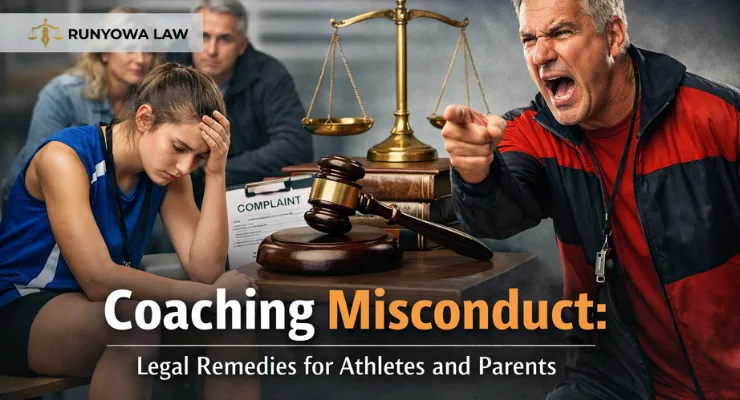When you’re facing a legal challenge—whether it’s a full-blown lawsuit or a smaller dispute—having a skilled civil defense attorney can be the difference between getting steamrolled and standing strong. They do far more than show up in court: they evaluate claims, build strategy, negotiate settlements, manage discovery, and ensure your rights are protected all the way through. If you’ve been sued, or you’re accused in some way, it’s not just about the courtroom drama—it’s about preparation, defense, and avoiding traps you didn’t even see coming.
1. Why You Need a Civil Defense Attorney
In everyday life or business, you might end up being sued—maybe it’s a contract dispute, a property issue, or a small-claims matter. It’s stressful. That’s where a civil defense attorney comes in: someone who defends you when you’re the target of a civil case.
A civil defense attorney specializes in representing defendants in lawsuits filed by others. Unlike plaintiff lawyers, who bring claims, civil defense lawyers protect you against them. They guide clients through complicated legal frameworks, negotiate settlements, and provide strong courtroom representation.
Civil law can be full of procedural traps and complex rules. Miss one deadline, and you could lose by default. A capable attorney ensures your rights are defended at every stage, both inside and outside the courtroom.
2. What Happens When You’re Sued – The Process
To understand how your attorney protects you, let’s walk through the typical stages of a civil lawsuit:
a) Initial Consultation & Evaluation
Your attorney meets you, reviews the complaint (if you’ve been sued), and assesses your exposure. They evaluate how strong the opposing side’s claim is and identify the best defense strategy.
b) Pleadings & Response
Once a complaint is filed, the defendant must respond with an “answer” or possibly a motion to dismiss. A civil defense attorney ensures the response is timely and accurate, potentially including counterclaims or affirmative defenses to strengthen your position.
c) Discovery (Fact-Gathering)
This is where both sides exchange information, evidence, and witness lists. Your attorney manages this process to preserve key evidence, protect privileged communication, and gather materials that support your defense.
d) Pre-Trial Motions & Settlement Discussions
Before trial, your lawyer may file motions (for example, to dismiss or limit certain evidence). They’ll also explore settlement options to resolve the matter efficiently without unnecessary risk or cost.
e) Trial Representation
If the case proceeds to trial, your attorney becomes your advocate in court—presenting evidence, cross-examining witnesses, and persuading the judge or jury to see your side.
f) Post-Trial & Appeals
Even after the verdict, your attorney helps with appeals, enforcement issues, or negotiating compliance with court orders.
3. Key Ways a Civil Defense Attorney Protects You
Let’s look at what your defender actually does—so you can see how they safeguard your interests.
3.1 Strategy and Risk Assessment
From the first meeting, your attorney evaluates the case: what’s at stake, where you’re exposed, and what outcomes are realistic. This assessment drives the entire defense plan.
3.2 Timely & Proper Filings
Civil cases are bound by strict rules. Missing deadlines or failing to file properly can result in automatic loss. Your attorney handles these filings precisely, so your defense stays solid.
3.3 Evidence Management
During discovery, a civil litigation defense attorney gathers helpful documents and witnesses, ensures nothing damaging is shared unnecessarily, and builds a factual base for your case.
3.4 Negotiation & Settlement
Most civil cases settle before trial. Your attorney negotiates settlements that protect you—minimizing loss, avoiding reputational damage, and ensuring fairness. They know when to compromise and when to stand firm.
3.5 Trial Representation
In the courtroom, your attorney is your voice. They cross-examine witnesses, challenge evidence, and argue the law persuasively. Their courtroom skill can make or break your case.
3.6 Defense of Rights & Liability Reduction
If the plaintiff’s claim is weak, your lawyer exposes flaws—such as lack of evidence, shared fault, or assumption of risk. Their goal isn’t just to win but to limit your exposure and minimize any financial or reputational harm.
3.7 Protecting Reputation & Future Interests
Civil suits can impact your personal or business reputation. A strong defense lawyer protects not just your legal rights, but your public image and long-term stability.
4. Special Areas of Civil Defense
Civil defense isn’t one-size-fits-all. Here are some specialized areas:
Small Claims Defense Attorney
When disputes involve smaller sums, a small claims defense attorney helps ensure you don’t underestimate the process. Even minor claims can affect your credit, reputation, or business relationships.
Civil Litigation Defense Attorney
In complex disputes—like contract breaches or corporate liability—a civil litigation defense attorney handles intricate filings, discovery battles, and legal motions that can shape the case outcome.
Civil Lawsuit Defense Attorney
A civil lawsuit defense attorney focuses on defending individuals or businesses being sued. They manage each phase, from pleadings to potential appeals, ensuring full protection throughout.
Criminal Defense and Civil Rights Attorney
Some civil issues overlap with constitutional or criminal matters—such as discrimination or unlawful detention. In those cases, a criminal defense and civil rights attorney can safeguard your broader legal and human rights.
5. How to Choose the Right Civil Defense Attorney
• Experience and Track Record
Ask about similar cases they’ve handled. A lawyer who regularly defends cases like yours understands nuances and judges’ tendencies.
• Strategic Approach
Do they prefer settlement or litigation? The right balance depends on your case’s strength and your goals.
• Communication Style
Legal battles are stressful. A good attorney keeps you informed, explains next steps clearly, and involves you in key decisions.
• Transparency and Fees
Discuss fees early. Understand how billing works—hourly, flat rate, or contingency—and what additional costs might arise.
• Jurisdiction and Local Insight
Always hire a lawyer licensed in your area. For instance, Civil Litigation Lawyer in Regina Canada would be suitable if your matter is in that jurisdiction.
• Authoritativeness and Trust
Check credentials, bar standing, client reviews, and professional recognition. You want someone respected in their field.
6. Common Mistakes to Avoid
- Delaying legal help. The longer you wait, the fewer options remain.
- Representing yourself. Without legal training, you might make fatal procedural errors.
- Ignoring settlement talks. Even if you’re confident, refusing to negotiate can waste time and money.
- Communicating without counsel. What you say can later be used against you—always speak through your lawyer.
- Choosing based only on cost. Cheaper isn’t always better—experience and courtroom skill matter more.
7. Why Your Defense Strategy Matters
Your defense doesn’t just impact one case—it shapes your reputation and finances long-term. A skilled litigation defense attorney can prevent unfavorable precedents, protect your business, and maintain your credibility.
A good defense also minimizes stress. With a competent attorney, you can focus on your work and life while they manage the legal complexities.
8. When to Hire a Civil Defense Attorney
You don’t need to wait until the lawsuit hits your desk. Hire an attorney early if:
- You receive a demand letter.
- You suspect someone may file a lawsuit.
- You’re notified of a pending civil complaint.
- You’re negotiating a high-risk contract.
- You’re facing issues involving your civil rights.
Getting an attorney early allows for proactive defense, faster resolutions, and less emotional strain.
9. How Civil Defense Attorneys Protect You – In a Nutshell
- Assess claims and develop defense strategy.
- File accurate and timely court responses.
- Manage discovery, evidence, and witness prep.
- Negotiate settlements strategically.
- Represent you with professionalism and authority in court.
- Reduce damages and safeguard your future.
- Offer peace of mind through trusted counsel.
FAQs
Q1: What exactly is a civil defense attorney?
A civil defense attorney represents defendants in civil lawsuits, protecting their rights and minimizing legal and financial risks.
Q2: How is a civil defense attorney different from a criminal defense lawyer?
Criminal defense attorneys handle government-filed cases involving crimes, while civil defense attorneys manage private disputes over contracts, property, or rights.
Q3: When should I hire a civil defense attorney?
Ideally, as soon as a legal threat arises—before court proceedings start. Early advice helps prevent costly mistakes.
Q4: Can I represent myself in a civil case?
Technically yes, but it’s risky. Without expertise, you could miss deadlines or weaken your defense.
Q5: How much does a civil defense attorney cost?
Fees vary based on complexity, location, and attorney experience. Most charge hourly or flat fees. Always discuss rates upfront.
Final Thoughts
Facing a lawsuit can feel overwhelming—but you don’t have to face it alone. A civil defense attorney is your legal shield: protecting your rights, your reputation, and your peace of mind. They combine strategy, experience, and advocacy to ensure you’re not overpowered by the system.
In civil court, knowledge and preparation win cases—and a skilled defense attorney gives you both.




